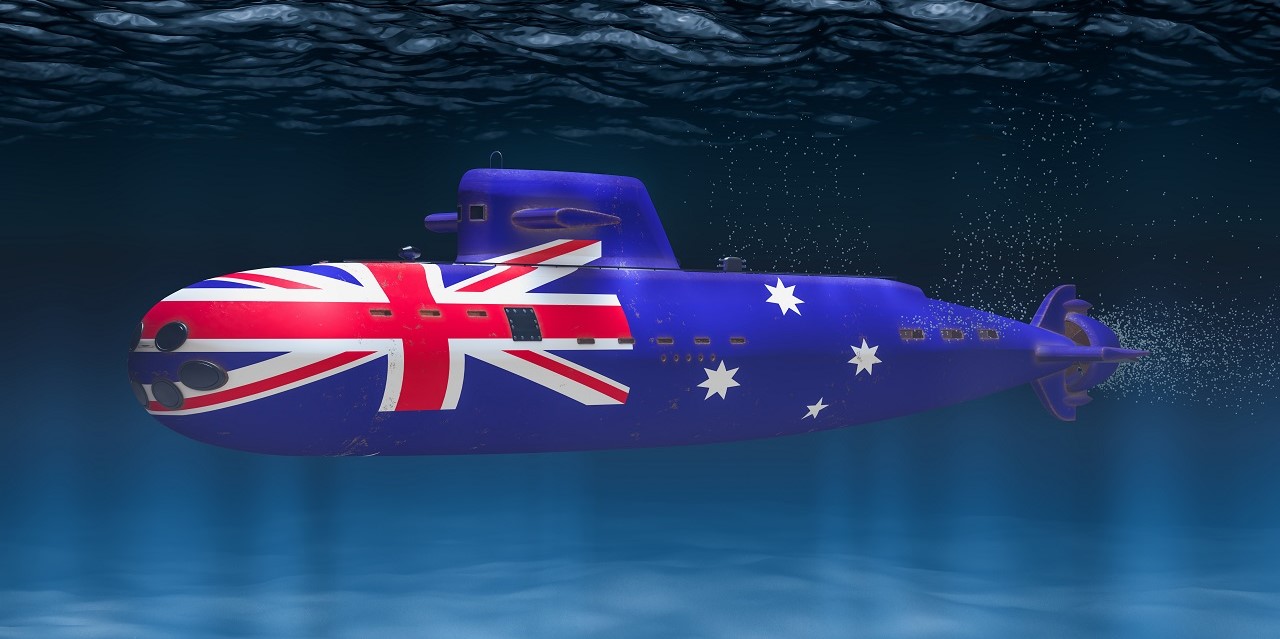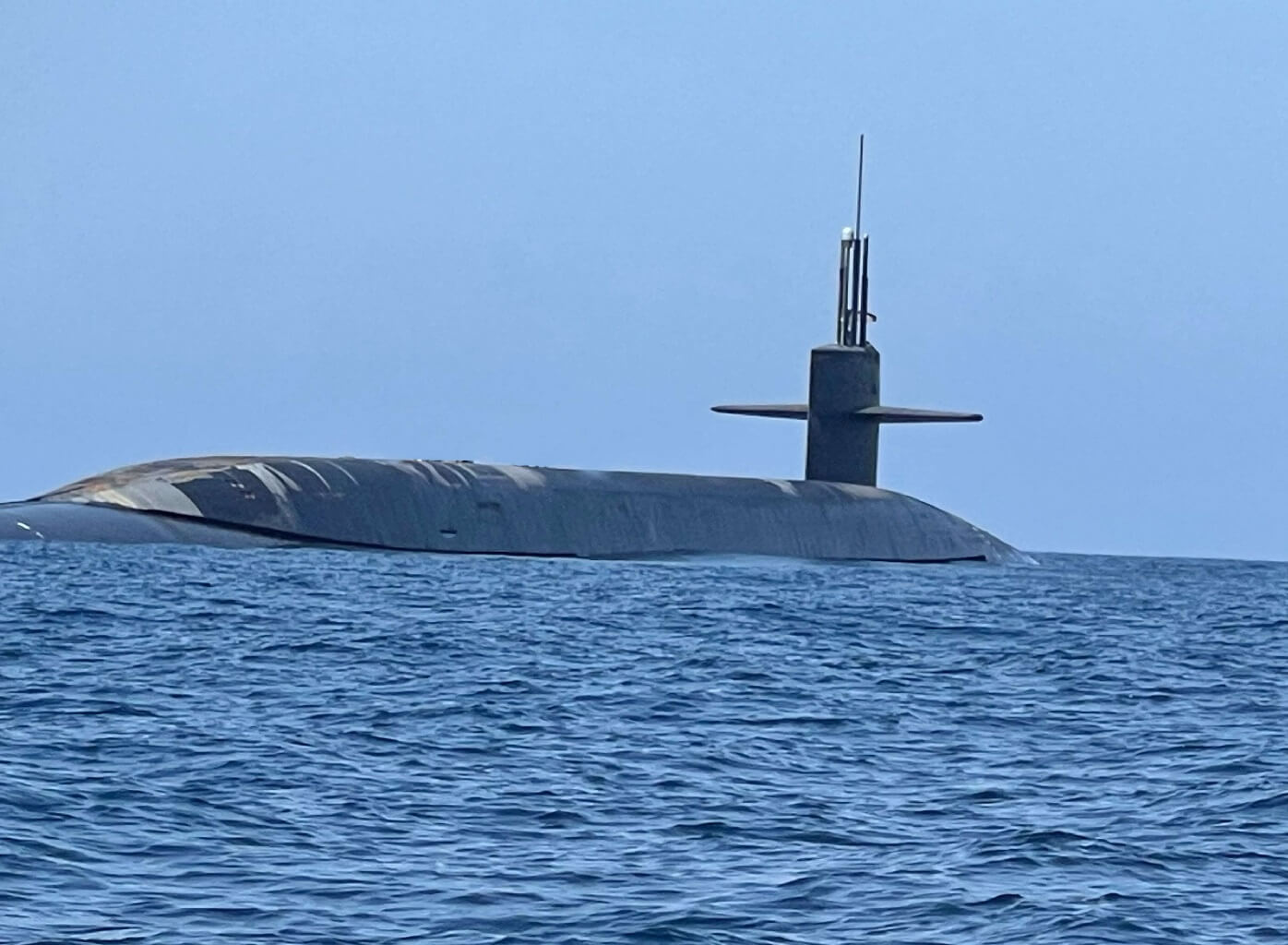Australia, the US, Japan, and the Philippines held joint naval and air drills in the highly contentious South China Sea on Sunday, as Beijing announced its own exercise in the disputed waterway.
“The Armed Forces of the Philippines, United States Indo-Pacific Command, Australian Defence Force, and Japan Self-Defense Forces successfully conducted the first Multilateral Maritime Cooperative Activity in the West Philippine Sea on Sunday,” the Philippine military said in a statement.
In a statement released by the four nations’ defense chiefs, the officials defined the drills as a way to demonstrate their “collective commitment to strengthen regional and international cooperation in support of a free and open Indo-Pacific.”
Meanwhile, the Financial Times reported on Saturday that the US, UK, and Australia would begin talks on adding new partners to their AUKUS security pact as the Biden administration looks to get Japan into the security alliance to thwart an increasingly belligerent China.
Earlier, the second most powerful diplomat in the United States made headlines when he linked the AUKUS submarines to a potential conflict in the Taiwan Strait.
Speaking at the Center for a New American Security on April 3, US Deputy Secretary of State Kurt Campbell said the AUKUS submarines could be used against China in the event of a conflict with Taiwan.
He said that the submarines would improve stability throughout the region, particularly across the Taiwan Strait, and they would even be able to stop Chinese aggression directed toward Taiwan. The ambassador stated that AUKUS has “enormous implications in a variety of scenarios, including in cross-strait circumstances.”
“I would argue that working closely with other nations, not just diplomatically but in defense avenues, has the consequence of strengthening peace and stability more generally,” Campbell added. This, however, goes against the assurance given by the AUKUS alliance that it was not directed at any third country and sought to bolster Canberra’s naval fleet for more robust security.
Under the AUKUS deal signed between Australia, the US, and the UK last year, Australia will buy up to three to five Virginia-class nuclear-powered submarines from the US and later co-develop AUKUS-class submarines with the UK.
AUKUS, according to Campbell, will become more crucial to Indo-Pacific security over time. Backing his argument, Campbell said, “What we’re confronting now are challenges that require a much deeper engagement with allies and partners. I think the idea will be in several potential areas of conflict and a number of scenarios.”
“I think those practical circumstances in which AUKUS has the potential to have submarines operating in close coordination that could deliver conventional ordinance from long distances,” he added.

Kurt Campbell’s remarks come days after the former head of US Indo-Pacific Command, Adm. Harry Harris, said that the technology-sharing arrangement under AUKUS will help prevent China from invading Taiwan by enabling Australia to construct its nuclear-powered submarines.
Selling Virginia-class submarines to Australia won’t harm American defense capabilities, according to Harris, who oversaw US Pacific Command before it was renamed US Indo-Pacific Command.
“It’s not a zero-sum game. We’re not going to sell a submarine to Australia and then have some deficit in the global submarine force. Australia is a key American ally,” Harris said.
However, these remarks may be contrary to Australia’s position that it would not fight against China alongside the US. In March last year, Australian Defense Minister Richard Marles said his nation had not promised the US that Australia would support its partner in any future conflict involving Taiwan in exchange for the US nuclear-powered submarines.
“Absolutely not, and I couldn’t be more unequivocal than that,” Marles told Australian Broadcasting Corp’s “Insiders” news program in March last year.
“I want to make it clear that the moment that there is a flag on the first of those Virginia-class submarines in the early 2030s is the moment that that submarine will be under the complete control of the Australian government of the day and again, no one would have expected that to be any different. I mean, that is obviously the basis upon which this is happening,” he added.

He stated that AUKUS submarines would help Australia in defending trade, freedom of navigation, and freedom of flight in the South China Sea. In fact, analysts reckon that Australia decided to choose the SSN AUKUS design and to deepen its collaboration with the US and UK because it needed to “have a submarine that is survivable enough and capable of fast deployments” in light of the military threats posed by China in the Pacific.
However, despite a strained relationship with China, Australia has continued to maintain “strategic ambiguity” by refusing to specify how it would respond if China attacked Taiwan. Ironically, the remarks come just as China and the US are trying to engage with one another on security matters to assuage the rising tensions.
China-US Officials Met In Hawaii
US officials announced on April 5 that they had met their Chinese counterparts earlier in the week for a series of meetings in Hawaii. The meetings were reportedly focused on how the two rivals can operate safely.
This followed a phone call from US President Joe Biden to Chinese President Xi Jinping, during which he attempted to defuse escalating tensions over the South China Sea. The two heads of state also decided to start direct military talks when they met in November last year.
The talks, which took place in Honolulu on April 3 and 4, are referred to as the Military Maritime Consultative Agreement (MMCA) working group. This was the first meeting of its kind since 2021.
The US military said in a statement that representatives from the two nations “reviewed safety-related events over the last few years and discussed sustaining maritime and aviation operational safety and professionalism.”
In a separate statement released by China, the Chinese defense ministry said the two parties had open and fruitful discussions about the maritime and aviation security situation between China and the United States.
As per the Chinese statement, the officials also reiterated that it would not tolerate any attempt to jeopardize its security and sovereignty for the sake of overflight and navigational freedom in the contentious region.
Against that backdrop, Campbell’s remarks can potentially trigger another round of tensions. China, on its part, maintains that Taiwan is a renegade Chinese province that needs to be brought back and united with the Chinese mainland. It frequently laments the military assistance provided by the US to Taiwan, calling it interference in its sovereign matters.
In response to Campbell’s comments, the Chinese state-owned publication Global Times said that the US has never been interested in “promoting peace and stability in the Indo-Pacific region,” as Campbell’s comments make clear.
Despite Biden’s assertion that this trilateral alliance is “not a challenge to anybody,” the US intends to use it as a means of challenging the status quo in the Taiwan Straits, it noted
- Contact the author at sakshi.tiwari9555 (at) gmail.com
- Follow EurAsian Times on Google News




